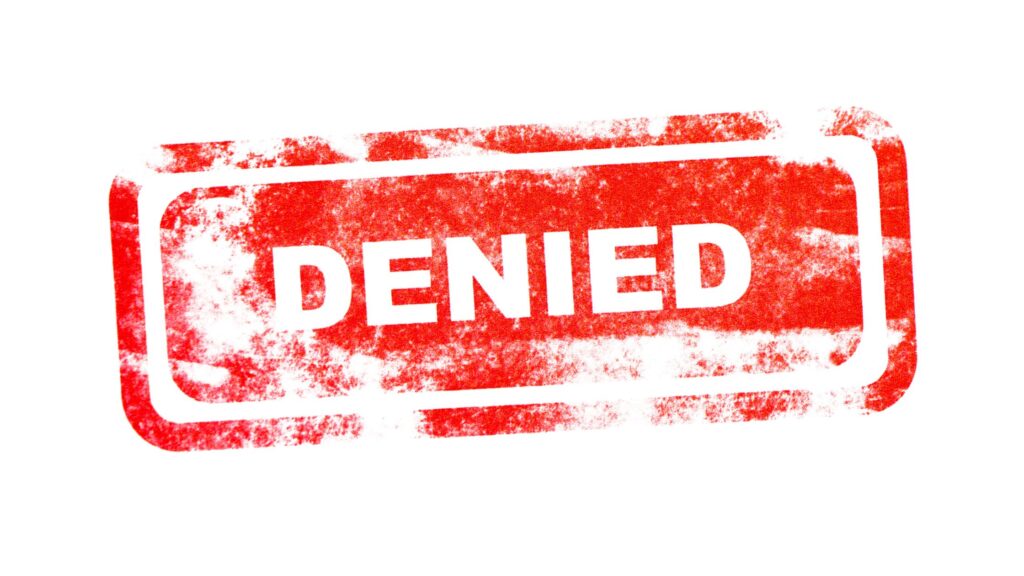The Correct Way to Say No – Adverse Action

Article written by Amy Polowichak
Employment background screenings play an important part in the hiring process, helping employers make sure they are hiring quality candidates. However, every employer is going to run into a part of that process that no one likes, eventually. Sometimes, a background check comes back with not so stellar results, and an employer must tell a candidate, “No”.
When this happens, it is crucial that employers comply fully with federal, state, and local laws to avoid making a misstep that could leave them open to litigation from a disappointed job applicant. One of the most common reasons for class action lawsuits related to employment background checks is the failure to follow an adverse action process that is compliant with federal and local laws. In the last couple of years class action lawsuits were filed against both Lowes Companies, Inc., in February, 2022, and Ace Hardware, in February, 2023, both claiming the companies failed to provide applicants with a copy of their background checks before making adverse employment decisions in violation of federal law. They are far from the only examples.
To avoid simple but costly mistakes like and to remove uncertainty during the adverse action process, employers should make sure that they have an adverse action policy in place before it is needed, and that all personnel involved in the hiring process are trained on the process. Hiring teams should consult with a legal professional with experience in employment law and knowledge of background screening laws relevant to their location to ensure that their adverse action process is compliant with all laws and regulations.
Federally, the Fair Credit Reporting Act (FCRA) requires that employers follow a process beginning with a pre-adverse action notice before taking adverse action based in any part on the results of a background check. In this context, adverse action means a decision made by an employer that negatively impacts an employee or applicant’s employment status. This can include not only terminating employment or declining to hire, but also denying a promotion or opportunity to work on a particular project, demoting an employee, or offering a less prestigious job than the originally offered position.
Pre-adverse Action
The first step employers must follow is to issue a pre-adverse notice to the employee/applicant, which informs them that the employer may take adverse action based on the results of their background check. Along with the pre-adverse notification, the employer should provide:
- A copy of the background check
- The name and contact information of the Consumer Reporting Agency (CRA) that prepared the background check
- A copy of the Summary of Your Rights Under the Fair Credit Reporting Act
Wait and Reconsider
Following this, the employer must give the employee/applicant the opportunity to respond to or to dispute the results of the background check. There is no exact time frame mandated under the FCRA for this waiting period, but a good practice is to allow at least five business days. Some states or cities may have their own laws mandating a specific time frame, such as the San Francisco Fair Chance Ordinance, which mandates that employees/applicants be given seven days to respond before any adverse action is taken on the basis of criminal history.
The employee/applicant may choose to provide the employer with an explanation for negative information in their background check or a statement on how the information is no longer an accurate representation of their suitability for employment. They may also choose to dispute with the CRA information in the background check that they believe is incorrect. In the event of a dispute, the CRA will conduct a re-investigation of the disputed information and make any needed corrections to the background check.
Before moving forward with the adverse action process the employer must consider any response from the employee/applicant and any changes to the background check resulting from a dispute investigation. If, after reviewing any new information, the employer decides to continue with the adverse action, they may then proceed to the final step of the adverse action process, the adverse action notice.
Adverse Action
Along with notification that adverse action has been taken, which can be provide in person, in writing, or electronically, the employer must provide:
- A copy of the final background check
- The name and contact information of the Consumer Reporting Agency (CRA) that prepared the background check
- A copy of the Summary of Your Rights Under the Fair Credit Reporting Act
In addition to the FCRA, many states and cities have passed their own laws regulating the adverse action process which may include additional requirements and specific wording in pre-adverse and adverse action letters. For example, if an employer’s adverse employment decision is based on a candidate’s criminal history, California law requires the employer to identify that cause in a pre-adverse action letter.
Navigating the adverse action process can be confusing and stressful, but being prepared can help you avoid a lot of headaches. Justifacts offers several customizable and cost-effective options for managing your adverse action process.




